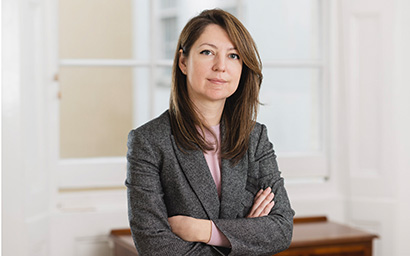With all eyes on companies leading the ESG charge, investing in issuers earlier in their environmental transitions could present fresh opportunities in a crowded market, says Maria Lozovik of Marsham Investment Management.
The debate on whether investing in companies incorporating ESG considerations into their business can drive returns is long over. However, as demonstrated by the recent criticism of the EU’s sustainable finance taxonomy, including the push by EU lawmakers to withdraw plans to label energy investments in gas as green, there is still an argument to be had about how best to reap the rewards of ESG investing.
When we think of ESG investing, we often look to companies that are already green. Other companies, currently still associated with carbon-intensive processes, are often overlooked. This could be a costly mistake, with investors potentially missing out on opportunities to capitalise on the ESG leaders of tomorrow.
Focusing on a company’s long-term sustainability trajectory, alongside a sound credit analysis, can identify undervalued opportunities and capture additional upside as ESG rankings improve. This is where transitional issuers come in.
Transitional issuers are companies that have not yet been recognised as ESG leaders – but are, as the name suggests, transitioning to more sustainable practices. Often, these companies operate in sectors like mining, energy and utilities. The management teams at these companies have recognised change is required and are often issuing debt to help fund this transition. For example, this could be an oil company pivoting towards clean hydrogen energy production.
Transitional issuers vs green bonds
From an investor perspective, it is important to understand the distinction between investing in transitional issuers and purchasing green bonds. The latter has experienced a surge in interest with record volumes of green bonds being issued in recent years. But just because a green bond is issued by a company does not necessarily mean this will solely benefit sustainable practices.
Due diligence means scrutinising a green bond and taking in the full picture. Issuers of green bonds may not necessarily be on the path to sustainability as a company overall, with proceeds from the debt only funding one part of a business. Proceeds from green bonds also free up other capital that risks being misallocated to other, potentially non-sustainable initiatives.
However, the opportunity is different with transitional issuers. As the name implies, these are companies that are pursuing organisation-wide change in the transition to a more sustainable future. Purchasing bonds from transitional issuers means investors can do so with greater confidence that their capital is funding real change. Analysis of an issuer can play a crucial role here.
This is because transitional issuers are inherently riskier than a company that was built from the ground up with sustainability at the heart of it. So, for this to be an effective strategy, an investment manager must carry out in-depth research to thoroughly understand a company’s sustainability strategy, and how its progress compares from one period to another. This works to ensure risk is kept as low as feasibly possible, and companies using greenwashing tactics are avoided.
Investing in these assets offers investors the chance to make a more meaningful impact on the journey to net zero. The old economy was effectively built by – and indeed is still underpinned by – carbon-intensive companies. Change cannot happen overnight – it is an extensive and costly process. Funding corporates that are working towards new sustainable and environmentally friendly practices mean investors can make a bigger impact with their capital. It is our belief that these transition investments will fuel a super cycle, and a rally similar to that seen in the tech sector in recent years.
*Maria Lozovik is founder and partner at Marsham Investment Management.
© 2022 funds europe





